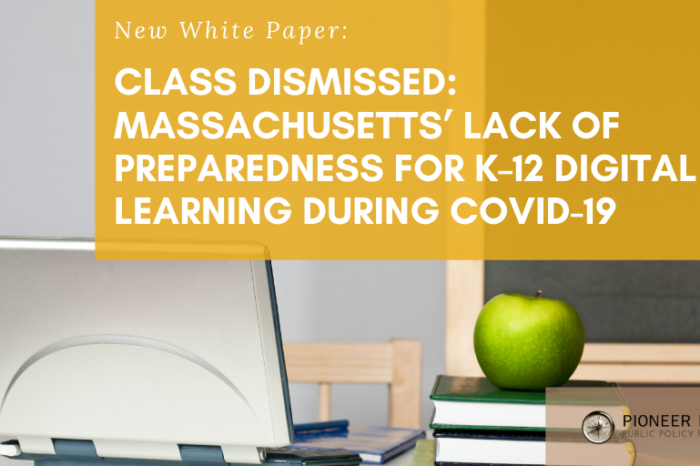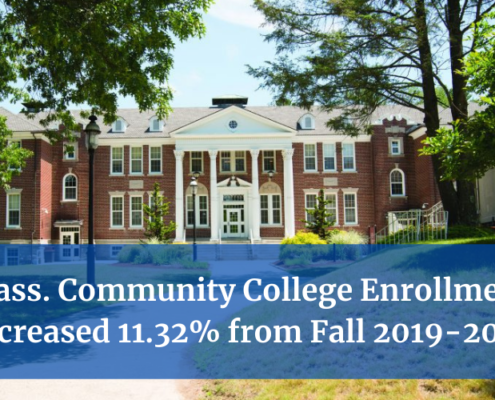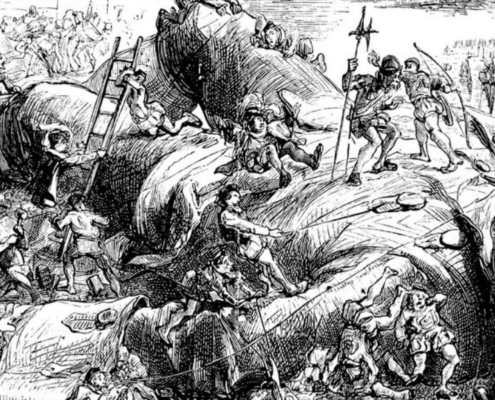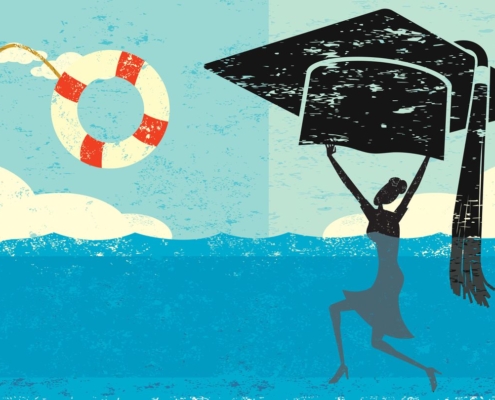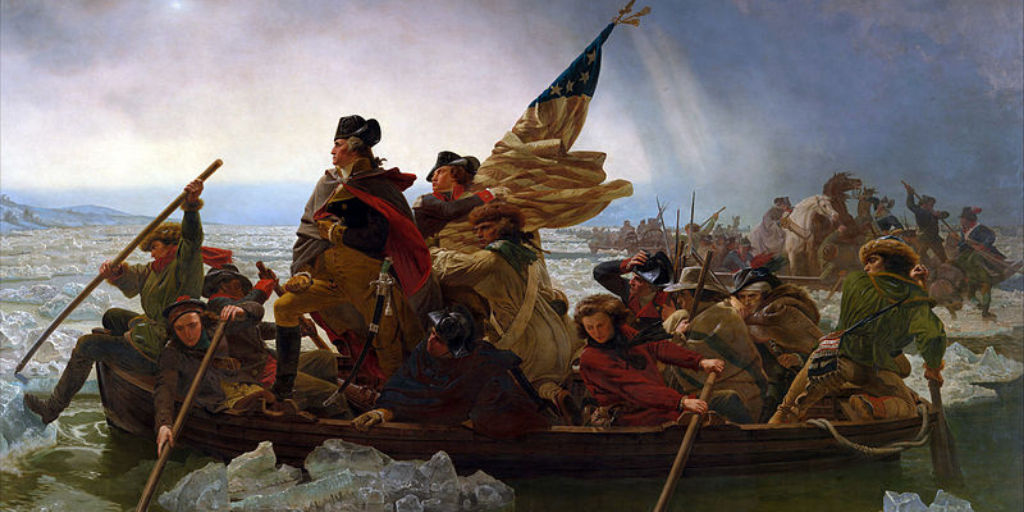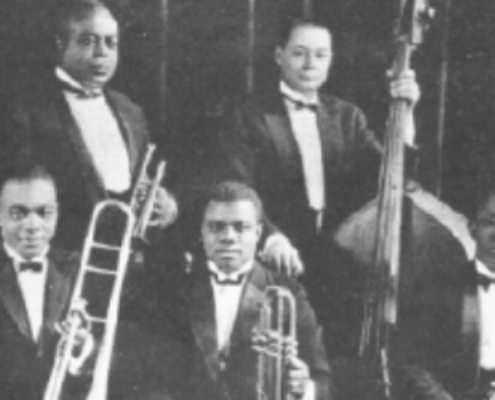Pandemic, Lost Instructional Time Reveal Massachusetts’ Digital Learning Weaknesses
Report urges education officials to upgrade virtual schooling
BOSTON – A report released today by Pioneer Institute says that the shutdown of Massachusetts schools due to the COVID-19 virus and the shift to online education have exposed the uneven nature of digital learning in the Commonwealth, and calls for state officials to develop programs to create more consistency.
The study, “Class Dismissed: Massachusetts’ Lack of Preparedness for K–12 Digital Learning During COVID-19,” urges state officials to create a plan for the 2020-21 school year that will address the education gaps that occurred during the final semester of this school year. It also encourages a plan to address how future extended closures would be managed.
When the pandemic crisis is over, the state should also “take steps toward generally improving its knowledge and capabilities with respect to online learning, which Pioneer, Bay State lawmakers, and nationally-recognized experts on digital learning have long identified as a significant area of weakness in Massachusetts’ K-12 education system,” according to report authors, attorney David Clancy and Dr. John Flores, a national expert in the field of education, technology, and telecommunication affiliated with the United States Distance Learning Association.
“This report candidly demonstrates – going back nearly a decade – how ill-prepared the Commonwealth has been to face this moment,” said Jamie Gass, Pioneer’s education policy director. “Digital learning is an indispensable tool to ensure the state meets its K-12 obligations, and Massachusetts has long been lagging far behind states like Florida, Arizona, and Utah.”
On March 15, Governor Baker closed school buildings and ordered the Department of Elementary and Secondary Education (DESE) to support public school systems in developing and implementing plans to assist families and students in accessing alternative learning opportunities. Nearly two weeks passed before DESE produced a list of recommendations and advised districts to launch virtual learning by “early April.” Not only did that mean that some districts would go several weeks without a virtual learning plan, many superintendents were confused about how to proceed, according to the report.
The state’s recommendations themselves were flawed at points, as detailed in the report. Consequently, problems persisted across a diversity of districts, and students across the state as a whole “were not experiencing the challenge they would have experienced in school, nor a consistent baseline across districts in terms of the amount of educational activity, the content of educational activity, or the amount and nature of teacher interaction,” the report states.
A detailed April 17, 2020 Education Reform Now analysis ranked Massachusetts behind 43 other states – including all other New England states – in its transition to virtual learning. The 43 states ranked above Massachusetts had (at the state level) required or more strongly encouraged districts to engage in virtual learning, and provided clearer guidance on how to do so, according to the report.
Though many states have struggled with the rapid transition to remote learning during the pandemic, the authors argue that Massachusetts suffers from a long-existing lack of preparedness in the realm of virtual learning. Statutes were passed in 2010 and 2013 to promote this alternative form of education, yet the Commonwealth – despite a record of quality and innovation in education generally – continues to lag behind other states with regard to developing knowledge and capabilities in the area of online learning.
The report includes several recommendations to improve the Commonwealth’s remote education:
- Create a timely, public, Fall 2020 plan. The DESE and school districts should be working now on a plan for the Fall 2020 semester which addresses the education gaps of this spring and prepares for possible additional closures. That plan should be released publicly early enough to allow meaningful input from the broader community, including parents.
- A separate plan for future school closures. The Commonwealth should also develop a plan for any similar school closure, which many experts believe may occur again as soon as the fall; reviewed and updated periodically.
- Improvements to the Spring 2020 DESE guidance. Going forward, DESE should improve its guidance in areas where the authors identified flaws, including academic content, duration of the school day, methods of teaching, student participation, special education and teacher feedback. The state should draw on the lessons from Pioneer’s recent policy brief with ASU Prep Digital on how best to serve special needs students.
ABOUT THE AUTHORS
Dr. John G. Flores is CEO and executive director emeritus of the United States Distance Learning Association, and an authority in the field of education, technology, and telecommunications. Flores led a Global Association focused on the application of distance learning for varied constituencies using varied technologies. He has held leadership positions as a School Superintendent, University Executive Dean and Business CEO for Distance Learning companies. He received his M.A. from Boston University and his Ph.D. from the University of Connecticut focusing on educational technology, instructional design and leadership.
David S. Clancy, a resident of Concord, Massachusetts, is a partner in the law firm Clancy & Shine LLC, which focuses on civil disputes. Mr. Clancy was previously partner at an international law firm, from which he retired after a 20-year career, also practicing civil litigation. Among other professional activities, Mr. Clancy served three terms on the Board of Editors of the Boston Bar Journal, and has published multiple articles in that and other legal publications.
About Pioneer
Mission
Pioneer Institute develops and communicates dynamic ideas that advance prosperity and a vibrant civic life in Massachusetts and beyond.
Vision
Success for Pioneer is when the citizens of our state and nation prosper and our society thrives because we enjoy world-class options in education, healthcare, transportation and economic opportunity, and when our government is limited, accountable and transparent.
Values
Pioneer believes that America is at its best when our citizenry is well-educated, committed to liberty, personal responsibility, and free enterprise, and both willing and able to test their beliefs based on facts and the free exchange of ideas.
Get Updates on Our Education Research
Related Content

